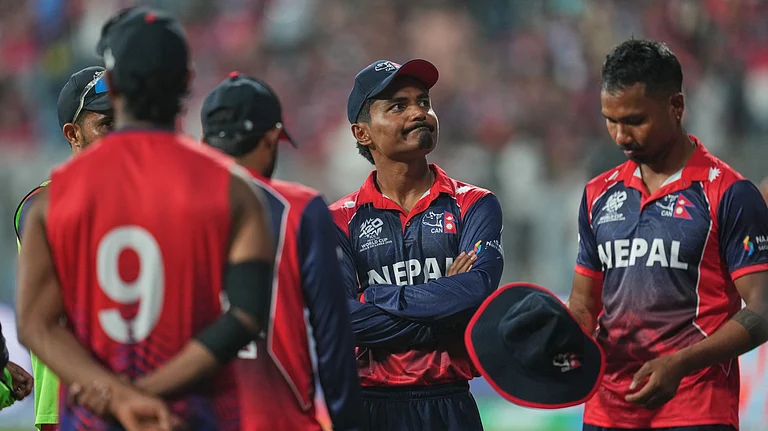The Supreme Court on Friday acquitted a West Bengal resident of the charge of killing his wife 40 years ago, ruling his conviction on the basis of extra-judicial confessions cannot be sustained as it is weak piece of evidence.
The top court said where an extra-judicial confession is surrounded by suspicious circumstances, its credibility becomes doubtful and it loses its importance.
The murder was alleged to have taken place on March 11, 1983 in Burdwan district of West Bengal. The trial court decided the case on March 31, 1987, acquitting Nikhil Chandra Mondal, who was booked for allegedly killing his wife.
The state government's appeal against the verdict remained pending in Calcutta High Court till December 15, 2008 on which date he was convicted and awarded life sentence.
Mondal preferred an appeal before the top court in 2010 against his conviction and sentence, which was decided on Friday.
A bench of Justices BR Gavai and Sanjay Karol said, "The impugned judgment and order dated December 15, 2008 passed by the High Court at Calcutta in Government Appeal…convicting the appellant for the offence punishable under Section 302 of the IPC is quashed and set aside."
The top court, referring to a 1984 verdict, said it can be seen that this Court has held that the circumstances from which the conclusion of guilt is to be drawn should be fully established.
"It has been held that the circumstances concerned "must or should" and not "may be" established. It has been held that there is not only a grammatical but a legal distinction between "may be proved" and "must be or should be proved". It has been held that the facts so established should be consistent only with the hypothesis of the guilt of the accused, that is to say, they should not be explainable on any other hypothesis except that the accused is guilty," the bench said.
The top court said it has been held that the circumstances should be of a conclusive nature and tendency and they should exclude every possible hypothesis except the one sought to be proved, and that there must be a chain of evidence so complete so as not to leave any reasonable ground for the conclusion consistent with the innocence of the accused and must show that in all human probability the act must have been done by the accused.
"It is a settled principle of law that however strong a suspicion may be, it cannot take place of a proof beyond reasonable doubt," the bench said, and noted the prosecution case rests basically on the extrajudicial confession alleged to have been made by Mondal before three of his fellow villagers, who have been made prosecution witnesses by the police.
It said the trial court observed that where the prosecution case is entirely based on extra-judicial confession and the prosecution seeks conviction of the accused on that extra-judicial confession, the evidence of the witnesses before whom the alleged confessional statement was made, requires a greater scrutiny to pass the test of credibility.
The bench noted the trial court found the testimonies of prosecution witnesses were contradictory and not trustworthy.
"It is a settled principle of law that extra-judicial confession is a weak piece of evidence. It has been held that where an extra-judicial confession is surrounded by suspicious circumstances, its credibility becomes doubtful and it loses its importance.
"It has further been held that it is well-settled that it is a rule of caution where the court would generally look for an independent reliable corroboration before placing any reliance upon such extra-judicial confession. It has been held that there is no doubt that conviction can be based on extra-judicial confession, but in the very nature of things, it is a weak piece of evidence," the bench said.
It said unless the finding of the trial court was found to be perverse, an interference would not be warranted and noted that the trial court found the testimonies of prosecution witnesses not reliable so as to base the conviction solely on such testimonies.
"We find that the approach adopted by the trial court was in accordance with law. However, this circumstance which, in our view, could not have been used has been employed by the High Court to seek corroboration to the extra-judicial confession," the bench said, adding the scope of interference in an appeal against acquittal is very well crystalised that unless such a finding is found to be perverse or illegal/impossible, it is not permissible for the appellate Court to interfere with the same.
The top court directed Mondal to be set at liberty forthwith unless required in any other case and upheld the trial court verdict dated March 31, 1987 acquitting him of murder charges.
On March 11, 1983, a case was registered at Ketugram police station of Burdwan district that the body of an unknown married woman aged 25 years was lying in a field on the side of the railway track at Ambalgisan railway station.
Police found that the woman, identified as Mondal's wife, was killed with a sharp edged weapon. During investigation, it was found that Mondal had accompanied his wife and son to a nearby village fair and she was missing ever since.
Police claimed Mondal had confessed before three fellow villagers Manick Pal, Pravat Kumar Misra and Kanai Saha that he had killed his wife with a bhojali (a type of knife) at the very spot where her body was found.
-With PTI Input


























